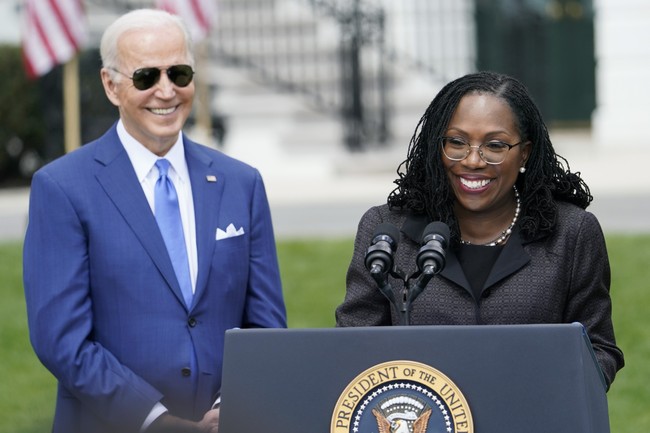On a recent occasion, Supreme Court Justice Ketanji Brown Jackson asserted her intent to use her voice in a public forum, highlighting her role and perspective as a member of the highest court in the United States. This announcement has ignited discussions regarding her judicial philosophy and approach to her responsibilities.
During an event, Jackson stated, “I’m not afraid to use my voice,” which received applause from attendees. Her remarks come in the context of ongoing debates about her qualifications and the role of judges within the judicial system. Critics have raised concerns that she prioritizes activism over strict adherence to the law, suggesting that her appointment may have been influenced by diversity, equity, and inclusion (DEI) initiatives championed by President Joe Biden.
Biden publicly indicated his goal to appoint a Black woman to the Supreme Court, which has led some observers to question the implications of this decision for judicial impartiality. Supporters argue that Jackson brings a valuable perspective to the court, while detractors assert that her appointment was more about representation than merit.
Jackson’s comments have sparked a reaction among her colleagues and observers alike. Some have noted that even fellow justices, such as Sonia Sotomayor and Elena Kagan, have at times challenged her views, raising questions about her understanding of constitutional law. Critics argue that her emphasis on personal expression may detract from her judicial responsibilities, asserting that judges should focus on legal interpretations rather than personal opinions.
The debate surrounding Jackson’s approach reflects broader tensions in the judicial system. Many view the role of justices as impartial arbiters of the law, while others perceive a shift towards a more activist judiciary. This has led to a polarized conversation regarding the expectations placed upon judges in today’s political climate.
In light of these discussions, Jackson’s commitment to vocalizing her views has been met with both support and criticism. Observers note that her willingness to speak out could contribute to a changing landscape in the judiciary, where the line between judicial responsibility and personal advocacy becomes increasingly blurred.
As the Supreme Court continues to navigate complex legal issues, the implications of Jackson’s perspective and approach may have significant consequences for future rulings and the perception of the court’s role in American society. The evolving dialogue around judicial activism versus traditional jurisprudence remains a critical topic as the nation grapples with contentious legal and political matters.
